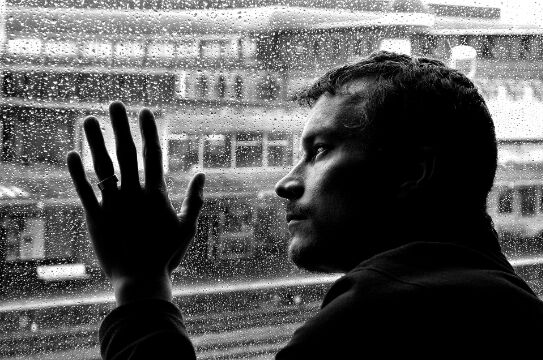Break the façade
Let’s shed the toxic masculinity that creates an illusion of men being inert to mental illnesses, even as they stand more vulnerable to negative repercussions

November is men's mental health awareness month. An age-old adage goes: "Men are from Mars and women are from Venus". But when it comes to the mind, neither of the two genders — or any other — are spared from the wrath of mental health disorders. We all are humans after all. In fact, mental health is one area where men are often the more marginalised section of society, especially when it comes to seeking help.
Stigma around men's emotions arises from generic negative statements like:
⁕Men should be stoic and remain 'strong' in the face of pain too;
⁕ Boys don't cry;
⁕ Don't be a girl: Emotions are reserved for women;
⁕ Men should not be 'hurt' easily because they are more practical and pragmatic;
⁕ Seeking help by a man means he is weak and emasculated.
Reality
Because men are more likely to bottle up their emotions due to unacceptance of their grief by others around them, there is a greater likelihood of their mental health issues becoming worse. This can have devastating consequences; the most explicit evidence of this is the high rate of male suicides globally. Closer home, a 2019 study in India showed that the ratio of male suicide victims to that of female suicide victims was 70:30. Though women are more likely to attempt suicide, men are more likely to die by suicide (completed suicide). The core reason is that when a male resorts to suicide, it is often done through a violent method.
Symptoms of depression in men
The core symptoms of depression remain common across genders. Low mood; lack of energy; lack of interest; change in behaviour; change in appetite, sleep, sexual desire; lack of concentration; suicidal thoughts for more than two weeks etc., are some of the symptoms.
While there is no different sort of 'male depression', some symptoms are more common in men than in women. These are maladaptive ways in which men try to cope up with depression:
⁕ Anger, irritability outbursts towards loved ones. At times, aggression or violence;
⁕ Overworking;
⁕ Shunning responsibilities at home;
⁕ Emotional disconnect with closed ones;
⁕ Drinking or smoking excessively, or drug abuse;
⁕ Risk-taking behaviour and loss of control.
Toxic masculinity
It refers to the harmful beliefs about the nature of masculinity and behavioral characteristics of masculinity. This adds to the burden of not reaching out for mental health support and building negative role models in society for other young men to follow.
Men who spoke up about their mental health concerns openly:
⁕ Michael Phelps spoke about his ADHD;
⁕ Jim Karey battled depression;
⁕ Virat Kohli wrote about his emotions after India's loss in the 2014 series;
⁕ Siddharth Mallya recently wrote a book about his tryst with mental health issues.
What can we do as a society?
⁕ Make mental health a household name;
⁕ Avoid gender-stereotyping: Stop putting people into preconceived boxes;
⁕ Speak to your kids equally, irrespective of them being of any gender. Set similar rules and rewards for them;
⁕ Let us change the narrative from 'mard ko dard nahi hota' (men do not feel pain) to "men are entitled to all ranges of emotions".
Send your questions to [email protected]



